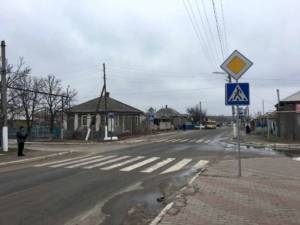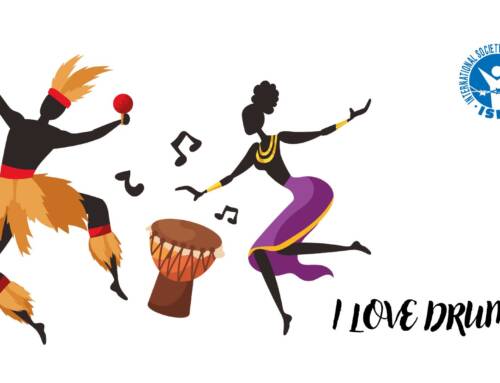
EDITORIAL
Dear ISHR Community,

As Autumn takes over in the northern hemisphere, the sun makes a comeback in the southern hemisphere and we launch into the third year of the pandemic accompanied by crises such as climate change and return of the Taliban to name a few, September and the months ahead are packed with strategic meetings to shape a different future.
From the opening of the UN General Assembly to the upcoming climate talks (Conference Of Parties/COP26) end of this month, the backlash against human rights continues but we are also learning to find new ideas and new ways in crises. ISHR’s recent annual general meeting held virtually, saw sections from Eastern Africa, Caucasus, Latin America, and Eastern Europe highlight both challenges and successes in their work. The link to the meeting is available here. Fast forward to 1:03 on the time bar to hear from the section representatives. Secondly, President Schirrmacher also confirmed the appointment of Matthias Boehning as the General Secretary. To kick off his new responsibilities, Mr. Boehning, a development economist with experience working for non-profits, private sector in both developing and emerging economies, delivered a comprehensive overview of the current human rights challenges (see below).
This newsletter edition reminds us of the resilience and hope that continues to resurface as human rights defenders work tirelessly to put back the pieces taken apart by oppressive regimes like the work done by the 2021 Nobel Peace prizes winners; Maria Ressa, a Filipino American journalist and Russian journalist Dmitry Muratov for their work to safeguard freedom of expression – a precondition for democracy and lasting peace. We’re also celebrating the work our social media team led by Irene-Bonjeh Azong-Wara has been doing to bring our Twitter account alive. We’ve grown organically from 38 followers to close to 400 in about 6 months by sharing the work that you (our sections do). We thrive on your efforts and would love to support you in shining a light on your work. Get in touch with us via mail or our Twitter account (@IS_HumanRights) or secretariat@ishr.org.
Prof. Dr. Thomas Schirrmacher
President of the International Council of the ISHR
Ulrich Nitschke, Elena Lunz and Joan Okitoi
Managing Editors, ISHR Secretariat
HUMAN RIGHTS WORLDWIDE
“Human rights are under pressure globally”
 2020 was a year like no other. The pandemic revealed and deepened existing social, economic, and political fault lines. Heads of states have been meeting this last quarter in different hybrid meetings with pressing needs in mind such as vaccine equity, climate crisis, gender, and racial equality and with the urgent need for greater cooperation. These issues also represent areas where the human rights situation globally has deteriorated in the last 12 months.
2020 was a year like no other. The pandemic revealed and deepened existing social, economic, and political fault lines. Heads of states have been meeting this last quarter in different hybrid meetings with pressing needs in mind such as vaccine equity, climate crisis, gender, and racial equality and with the urgent need for greater cooperation. These issues also represent areas where the human rights situation globally has deteriorated in the last 12 months.
Update from IGFM Annual General Meeting (September 2021)

Image source: IGFM
The German section of the ISHR (IGFM) held it’s annual general conference commemorating communist dictatorships whose ripples were felt in other parts of Europe such as Eastern Germany or the former GDR. Officiated by Markus Meckel (on the picture), Chairman of the Board of Trustees of the Federal Foundation for the Reappraisal of the SED Dictatorship and Foreign Minister of the GDR from April to August 1990, he described the remembrance of the past as a “national task” and “service to society” at the IGFM conference.
Meckel was also quick to point out there is no consensus in Germany and Europe on the evaluation of communism – unlike with regard to National Socialism. “That the crimes of communism are trivialized is something I experience in Germany and the rest of Europe to this day.” He called for the involvement of scientific research, teaching at universities and schools, and media in this work of coming to terms with the past.
Ukraine: Life on the demarcation line – one man’s fate

Image source: ISHR
“I woke up at 5:30 in the morning, although the alarm clock should have rung much later. I woke up because the sound of a squall of wind outside my window. That’s what it felt like to me in the first few minutes of my awakening. The next few minutes later, I realized that it wasn’t wind at all, as such a noise was not realistic for wind. As I later found out, a Ukrainian fighter jet was flying over Luhansk and pro-Russian separatists were seizing a border outpost in an area that was a five-minute drive from our house and there was a fight between the separatists and the Ukrainian military …”
A personal reflection from one of ISHR’s very own recounting the human rights violations committed to the people of Luhansk in Ukraine by the Russian forces.
Lecture series on strengthening the rule of law in Armenia and Ukraine
On September 15, ISHR conducted a lecture for law students of the Grinchenko Kiev University (Ukraine). This first (out of 28 planned) lecture for law students is a part of a new two-year project “Strengthening the rule of law in Armenia and Ukraine”.

Image source: ISHR Ukraine
Coordinator of the monitoring group of the Information and Analytical Center of the International Society for Human Rights Anastasia Alekseyeva explained to the students the main aspects of analytical work in the field of jurisprudence, the prospects for employment in this area, the importance of evaluating the caselaw of the European Court of Human Rights for future application in legal work. She also spoke about the activities of the ISHR, the process and purposes of monitoring court hearings, the peculiarities of the analytical internship in IAC ISHR, introduced the students to the main negative trends in the field of observance of the right to a fair trial, identified by the IAC ISHR in 2020. The expert and the students discussed the important qualities of a modern lawyer.
“Strengthening the rule of law in Armenia and Ukraine” project focuses on the observance of the right to a fair trial in Armenian and Ukrainian courts. This goal will be achieved through a series of educational events (such as lectures and work sessions) for 560 law students, round tables in six regions of Ukraine and Armenia, conferences in Kiev and Erevan, and monitoring of 210 court hearings in these countries. The first work meeting of the ISHR with representatives of universities, local government, Media, student organizations, and legal community is scheduled for October 2021.
Lecture series on strengthening the rule of law in Armenia and Ukraine

The Human Rights Ombudsman of the Republic of Artsakh met with the representatives of the French organization L’Œuvre d’Orient.
During the meeting the Ombudsman introduced the manifestations of vandalism against the Armenian spiritual and cultural heritage during the Azeri-Turkish aggression in 2020 and events recorded after the war. Detailed reference was made to the humanitarian issues in Artsakh, situation of protection of the rights of the displaced persons.
An agreement was reached to continue the joint work on raising international awareness on the protection of the Armenian spiritual and cultural heritage under the occupation of Azerbaijan.
Following this, accompanied by the Ombudsman and the Head of the Department of the Ombudsman’s Staff Margarita Gasparyan, the representatives of the L’Œuvre d’Orient visited the ‘Lotus’ Hotel in Stepanakert and met with the displaced families from the occupied communities of Artsakh.
The representatives of the organization listened to the stories of the displaced persons, got acquainted with their living conditions and problems and undertook to take actions to support the people of Artsakh within their competence.
Events & Resources
Europe: Training materials on access to justice for migrants
In September 2021 ICJ published today a set of training materials on access to justice for migrants that should serve as a support and background information for judges and lawyers when taking decisions on or defending the rights of migrants and refugees.
2021 Dublin Arts and Human Rights Festival (15–24 October)
Smashing Times and Front Line Defenders in partnership with Amnesty International, Fighting Words, Irish Council for Civil Liberties, National Women’s Council of Ireland, Trócaire, and Poetry Ireland will implement the 2021 Dublin Arts and Human Rights Festival to showcase and highlight the extraordinary work of human rights defenders in Ireland and around the world, past and present, and the role of the arts and artists in promoting human rights today. The festival will run for ten days from Friday 15 October to Sunday 24 October 2021.
Defence rights in evidentiary procedures (22 October)
Evidence forms the basis of a criminal case. It must be gathered lawfully, respecting the proper procedures and the rights of the suspect or accused person. But what happens when procedural safeguards are violated? For instance, can a statement given without access to a lawyer or without proper notification of the right to remain silent be included in evidence and used in a trial?
As part of the Defence Rights in Evidentiary Procedures (DREP) project, Fair Trials and its national partners – Croatian Law Centre (Croatia), Irish Council for Civil Liberties, Human Rights Monitoring Institute (Lithuania), Helsinki Foundation for Human Rights (Poland) and Civil Rights Defenders (Sweden) and DREP’s academic partner the Catholic University of Leuven – have sought to answer these questions. This event happens on 22 October 2021 at 10:30–15:30 CEST.
INSPIRATION FROM HEROES OF OUR TIME
Here, we share with you an extract from one of our campaigns the ISHR is advancing on its Twitter channel (@IS_HumanRights). We have intensified our Twitter activities, so make sure to have a look, share and engage!








